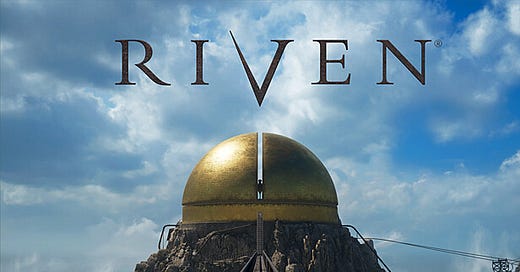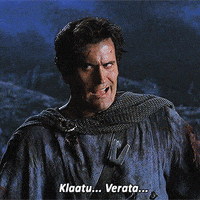Greetings, Fellow Adventurers,
It’s another Folklore Friday!
As you know every Friday, we’ll embark on a journey through ancient tales, hidden myths, and mysterious legends that make up the fantasy worlds. Folklore Fridays will dive into the stories that shape the heart of our epic adventures.
So grab your sword, light your lantern, and prepare to journey into realms of fantasy and lore. Who knows what we’ll uncover?
Feeling generous? ✨Want to support my work? ✨Consider donating a coffee to keep me energized and the creativity flowing.
Your contribution is greatly appreciated. 🙏
This week: What’s in a name?
-Romeo and Juliet, Shakespeare
Naming characters can be a daunting task. I remember playing The Sims, and the hardest part was always coming up with names. I’d sit there, racking my brain, trying to find something unique. Fast forward to my fantasy and sci-fi writing now, and I’m not just looking for unique names…I need ones that feel otherworldly.
But fear not! I’ve got some techniques you can use to create your own memorable character names.
There are online name generators such as this one by Reedsy:
https://blog.reedsy.com/character-name-generator/
This website offers many options for name generation and can be handy in a pinch, perfect for TTRPG gaming nights or video game characters. You could use this method for secondary characters (since they might not survive or aren't pivotal to the storyline), but personally, I wouldn't recommend it for your main characters. Imagine being interviewed about your latest published book, only for fans to discover you randomly generated the name for their favorite hero.
Hard pass.
We want the personal backstory, the inspiration, the depth of your creative brilliance! Maybe I’m making a bigger deal of this than it really is, but let’s roll with it. 😉
Use real-world languages:
One great source for name creation is other languages. I used this approach when creating the name of my lizard race, the Shalvasan. I derived it from the Sanskrit word Savasana, meaning "corpse pose." I liked the sound of the word, so I tweaked it to form the name of my lizard race. Depending on your audience choose a language that your readers may not be familiar with, it makes them feel otherworldly without leaving your home planet.
Like the Shalvasan example, taking inspiration from languages can lend a sense of depth and authenticity. You can look at ancient or modern languages and adapt words to fit your characters. If you want a noble-sounding name, you might pull from Latin or Old English; for an exotic alien race, you could explore African, Asian, or Indigenous languages for inspiration. You can even invent hybrid names by combining elements from different languages to create something unique.
Use the Character’s Role:
You could base the name on the character’s role or profession in the story. For example, in the United Kingdom last names referred to one’s profession such as: Smith, Cooper, Baker, and Miller. Here is a link made by Allen with a great list of names and their meanings: https://www.lutins.org/lists/surnames.html
I don't have an example of this in my own work, but there’s a great one from
his character Reia Loresinger. The name itself is a fantastic choice for several reasons. Reia evokes a sense of elegance and musicality, which aligns perfectly with her role as a lore keeper and songwriter. The surname Loresinger is equally telling. It’s not just a name, it’s a description of her identity. The word ‘lore’ ties her to ancient stories, wisdom, and tradition, while ‘singer’ instantly associates her with music and vocal expression.This is a great story btw. You all should check it out ⬇️
A well-chosen name can immediately convey important information about the character, allowing the reader to get a sense of who they are and what they do, even before they’re fully introduced. This is especially important in fantasy, where names often carry deeper meanings, link to cultural traditions, or hint at a character’s destiny.
Borrow from Mythology, History or Sci-Fi Culture:
One of my favorite methods for creating names is drawing inspiration from ancient gods, legendary creatures, and Sci-fi culture. By modifying these names, you can create something entirely original while still carrying a sense of meaning or significance. Many of my character names come from this approach. It's a bit like the language-based method, but with a personal twist, you're taking something familiar and manipulating it to suit your specific needs. A piece of you, the author, goes into the work.
For example, Klatu, my main Shalvasan from The Chronicles, was inspired by a word from one of my favorite movies, Army of Darkness. In the film, Ash recites it to remove the Necronomicon from its cradle. Interestingly,
pointed out that the word originates from a 1951 film, The Day the Earth Stood Still, which I hadn’t heard of until now. It’s definitely going on my watchlist!This technique is great because it allows you to blend the familiar with the new, creating names that feel both rooted in something recognizable and fresh for your own work.
Riven, my male human character from Earth who is a bit of a technophobe, is directly inspired by the game Riven, which is a sequel to Myst. I’ve played through the entire series, and even though it's a very old computer game, it still holds up for me. Have you played this series? Comment below⬇️
If you're unable to get your hands on these retro games, I highly recommend Obduction, which was also created by Cyan Worlds and has that same Myst vibe. I’ve played and completed Obduction as well…it was a lot of fun.
Skarne, a lackey from the beginning of Ka’nar, was inspired by the character Michael Scarn from Threat Level Midnight, the fictional movie within The Office. In the movie, Michael Scott plays Michael Scarn, a ridiculously over-the-top action hero, and I couldn’t resist using that as a fun reference. I changed the spelling to Skarne while keeping the pronunciation the same.
This method gives the readers a little window into me (the author). I like Army of Darkness, The Office and The Myst series. Have you done this in your series? Those little personal touches that say something about you directly? Let me know below ⬇️
Lastly Using a Theme:
When crafting names for your characters, following a theme can give your world a sense of unity and immersion. Themes can be drawn from various sources, such as nature, elements, animals, mythology, colors, or even emotions. This method can also help differentiate cultures, races, or factions within your world, making it clear at a glance where a character comes from or what role they play
For example, if you're creating a world where one region is deeply connected to the sea, it makes sense for the characters from that region to have names related to water or the ocean, like Maris or Nautilus. If you're building a society where warriors are revered, you might give them names like Klatu the Brave or Skolvax Deathbringer which sound fitting for combat-focused characters.
This is the other main method I use, except my theme is based on the Shalvasan language. Their language has heavy K sounds and soft S sounds. Think sssssssssK! Hard to show the sound with typing, but you get me right? Almost every single name of someone from the planet Shalvasan has S and K in their names.
Crasess, Ss’kara, Draak, Skolvax, Sekaroth, Klatu, Kae, Kragar, Sylos, Kreplar, Kaspar, Kasima, Lady Kairys, and Fauskar are some examples of this theme running through my work.
In Summary
Use Real-World Languages: Take inspiration from existing languages (ancient or modern) to create names that feel authentic. Choose languages based on your audience’s familiarity to add depth, such as Latin for nobility or Indigenous languages for exotic cultures.
Use the Character’s Role: Names can reflect a character’s role or profession. For instance, the name Reia Loresinger fits a character who is a lore keeper and songwriter, with “lore” connecting to ancient wisdom and “singer” tying to music.
Borrow from Mythology, History, or Sci-Fi Culture: Modify names from gods, legendary figures, or pop culture (e.g., Klatu from Army of Darkness) to create something unique but familiar. This method can add personal touches, reflecting the author’s influences.
Use a Theme: Naming characters based on a theme (nature, colors, animals, etc.) creates unity in the world-building. For example, reflecting the culture or characteristics of a faction, such as a strong, warrior-like names (Skolvax and Sekaroth).
Are you liking Folklore Fridays? If so, subscribe, restack, and if you are feeling extra generous please consider making a donation at the link below. Your support is greatly appreciated. 🙏









Wow this took me back. I played Myst on my desktop when it first came out! 🙈 Fantastic guide to names and languages.
Great game. Has held up well.